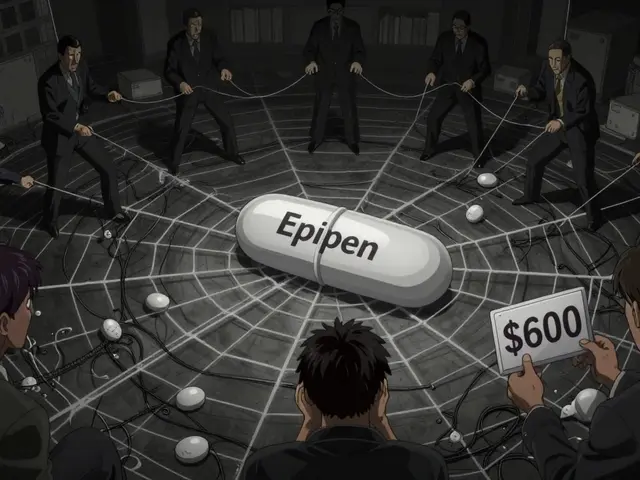Stomach Acid Relief – Simple Tips & Remedies
If you’ve ever felt that burning feeling after a big meal or late‑night snack, you know how annoying stomach acid can be. It’s not just a nuisance; it can mess with sleep, mood, and daily energy. The good news? Most people can calm the burn with easy steps that cost little time or money.
Quick Over‑the‑Counter Fixes
The fastest way to quiet acid is an OTC antacid like Tums, Rolaids, or a calcium carbonate chewable. These work in minutes by neutralizing stomach acid directly. If you need longer relief, try an H2 blocker such as famotidine (Pepcid) or ranitidine alternatives; they reduce the amount of acid your stomach makes and last up to 12 hours. For nightly symptoms, a proton‑pump inhibitor (PPI) like omeprazole can keep acid low while you sleep, but stick to the label – daily use without a doctor’s OK isn’t recommended.
Don’t forget about natural options. A half‑teaspoon of baking soda mixed in water neutralizes acid fast, but only use it occasionally because too much sodium can be harmful.
When to Seek Medical Help
If you notice blood in vomit or stool, sudden weight loss, difficulty swallowing, or pain that doesn’t ease with OTC meds, call a doctor right away. Persistent symptoms for more than two weeks could signal an ulcer or GERD that needs prescription treatment and possibly endoscopy.
Doctors may prescribe stronger PPIs, prokinetics to help the stomach empty faster, or test for H. pylori infection, which can cause ulcers. Early diagnosis prevents complications and gets you back to feeling normal sooner.
Besides meds, what you eat plays a huge role. Cut down on spicy foods, citrus, tomato‑based sauces, chocolate, caffeine, and alcohol – they all relax the lower esophageal sphincter, letting acid splash up into the throat.
Try smaller, more frequent meals instead of three big plates. Eating large portions stretches the stomach and pushes acid upward. A good rule is to keep each meal under 500 calories and finish eating at least three hours before bed.
Standing or lying flat right after a meal can trigger reflux. Stay upright for an hour, even a short walk helps gravity do its job. If you’re prone to nighttime symptoms, elevate the head of your bed by 6‑8 inches with wedges or blocks under the mattress.
Clothing matters too. Tight waistbands press on the stomach and increase pressure on the sphincter. Swap out skinny jeans for looser pants if you notice more heartburn after a day at work.
Stress isn’t just in your head – it can boost acid production. Simple relaxation tricks like deep breathing, short meditation sessions, or even a quick stretch break can lower stress hormones and calm the gut.
Putting these tips together creates a solid plan: start with an antacid for immediate relief, adjust food and habits to stop future flare‑ups, and know when professional care is needed. Most people find that a mix of OTC meds, smart eating, and lifestyle tweaks keep stomach acid under control without the need for stronger prescription drugs.
Keep this guide handy next time you feel the burn. A few small changes can make a big difference in how often you experience that uncomfortable fire.
9 Alternatives to Ranitidine in 2025
Ranitidine was once a go-to for heartburn relief, but now there are many other options. From fast-acting antacids to prescription medications, this article explores nine alternatives for those seeking relief from acid-related issues. Each option comes with its own set of pros and cons to help you find the best fit for your needs. With clear comparisons and practical insights, you'll discover which remedy might work best for you.
About
Medications
Latest Posts


The Role of Calcipotriol in Treating Pustular Psoriasis
By Orion Kingsworth Nov 8, 2023

Nutrition During Chemotherapy: How to Manage Nausea and Maintain Weight
By Orion Kingsworth Feb 24, 2026

Buy Cheap Generic Crestor Online - 2025 Guide to Safe Savings
By Orion Kingsworth Oct 8, 2025

